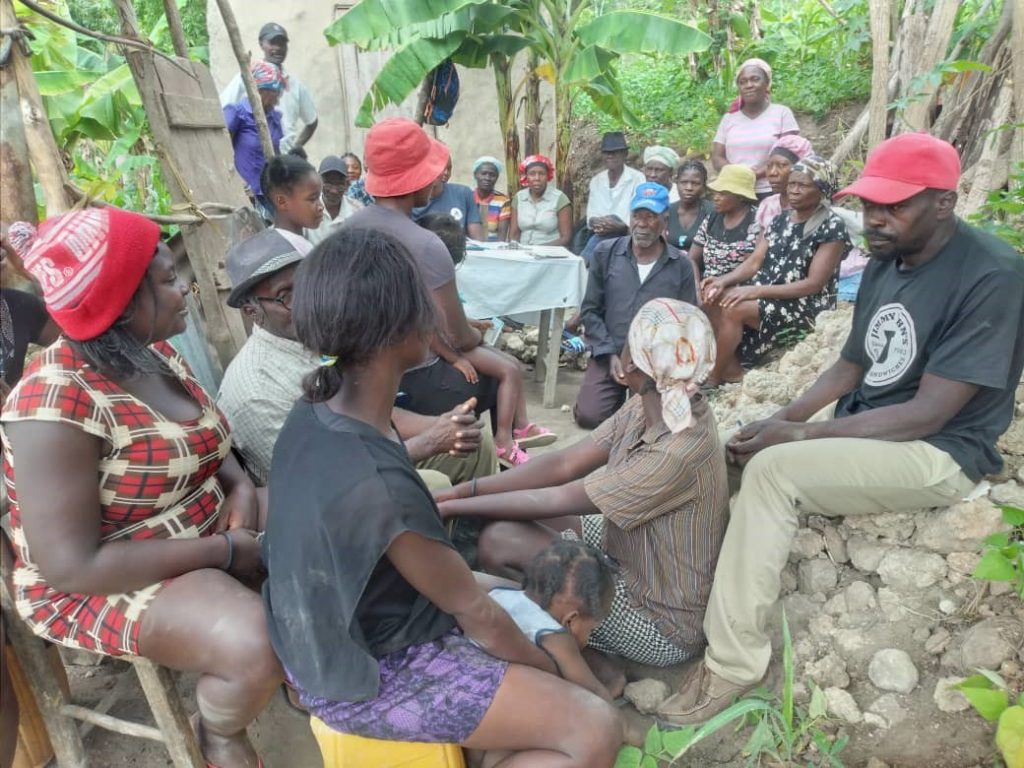
A Common Plant Offers Uncommon Opportunity
Emmanuel, who participates in various training opportunities with local partner OPFSLDIBH, is amazed that a common plant in the area is turning out to be of economic importance to him and his family. The castor oil plant (castor bean, or ricinus communis) is emerging as a high-value, high-yield crop and a good source of income for area farm families. In a country rife with violence, natural disasters, and economic hardships, this is great news.
“We used to ignore the castor oil plant that grows here and there because we did not know its value,” says Emmanuel. “But now, after training, we have learned that castor oil is an important remedy and a valuable resource. It’s easy to grow, can tolerate a lot of sun and heat, and prevents soil erosion where you plant it, because the large leaves slow down the force of rains.”
Castor oil plants do not require a lot of investment, and can be planted and harvested year-round. Because they contain a toxin called ricin, care must be taken to keep animals from eating them. Its flowers, fruit and the shape of the leaves are very attractive, and the oil itself has many uses ranging from medicinal to agricultural to industrial. It has been used for thousands of years as a laxative and to eliminate intestinal parasites. There is currently a high international demand for Haitian castor oil in beauty products for skin and hair, and it is an important biofuel.
Emanuel was one of 10 farmers selected as suppliers of harvested plants to OPFSLDIBH. Criteria for participation included being a member of one of the OPFSLDIBH farmer groups, at least 25 years old, of good standing in the community, and with experience in agriculture and availability of land. They also had to agree to sell OPFSLDIBH their harvested castor oil plants.
Emmanuel’s experience was immediately positive. “I tried roasting some of my castor oil plants in an oven which was previously used to make charcoal. They produced a lot of oil. I sold OPFSLDIBH the rest of them, and bought a chicken to raise for egg production. I really appreciate this idea of valuing the plants we find in our environment,” he says.
Haiti Mole St. Nicolas Program
Led by Church World Service and Local Partner OPFSLDIBH
